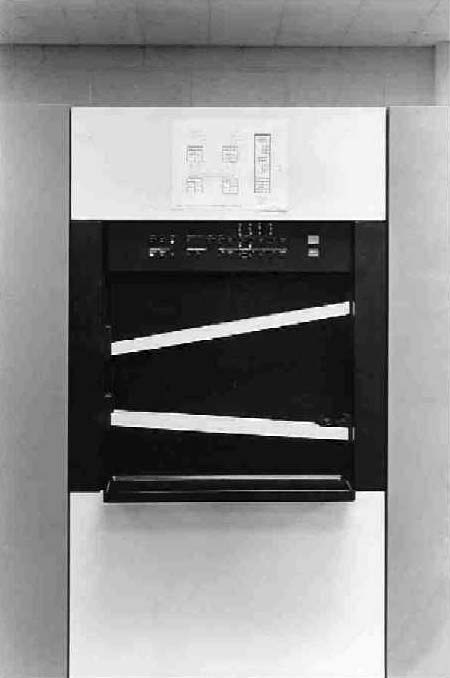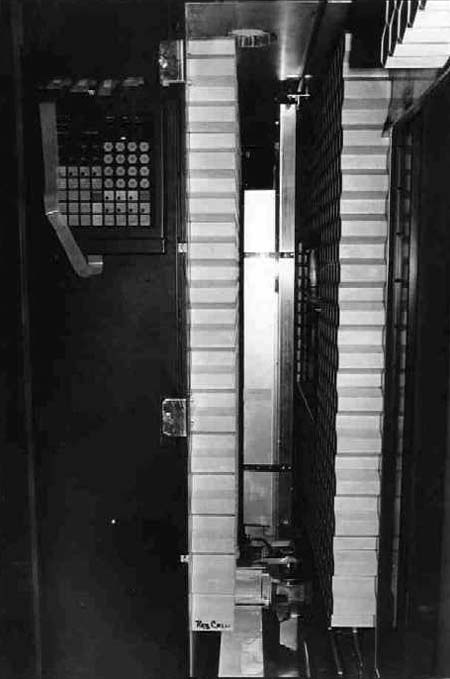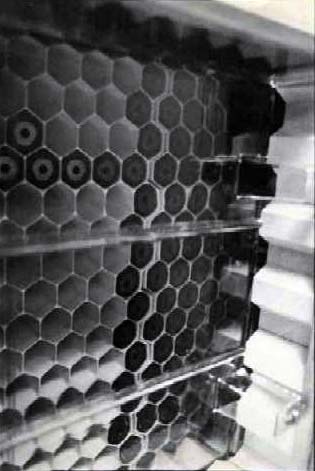The IBM 3850 Mass Storage System
The IBM 3850 Mass Storage System was the monster storage device of its day. Columbia's MSS had a capacity of 102.2 GB: 2000 cartridges of 50MB each; it was used to hold the entire 1980 USA Census database and make it available to users of Columbia's IBM mainframe computers.
Figures:
- This is the front of the MSS, where new cartridges can be inserted or old ones disgorged. This is only one of eight cabinets. Each cabinet is about three feet wide, so the MSS was over 20 feet long (see machine-room photo below).
- Interior of the MSS, looking in from the right side. The honeycombs that contain the data cartridges are left and right of the interior cavity.
- A section of MSS honeycomb, with some chambers empty and others containing data cartridges. Cartridges were cataloged on and staged to a set of four IBM 3330 disks, more or less transparently to the user. Cartridges were fetched from the honeycomb by a mechanical hand at the intersection of travelling X and Y wire cables, brought to a reader/writer that unspooled the magnetic tape. The data transfer was transferred to/from disk, and then the tape was returned to its cartridge, and the cartridge returned to its cell by the roving hand. Two tape cartridges made a 100MB 3330 disk.
- The Data Recording Device (DRD), the mechanism that extracts the tape from the cartridge, reads and/or writes it, and then puts it back.
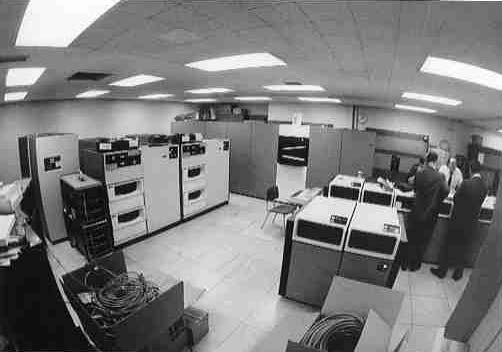
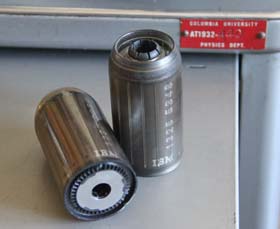
In October 2018, Dietmar Stroh wrote:
In the computer-history of columbia university You describe a Mass Storage IBM 3850. If You want to see such a machine "working" (I think, it is the last existing one in the world), please visit "Historisches Museum Frankfurt" in the old town near "Römer". I am the "father" of this machine; as a member of "Förderkreis Industrie- und Technikgeschichte" I got it in 1991 from a very big EDP center and rescued the essential parts from becoming scrap. With a 3-men projectgroup we since 2015 renewed parts of the machine, added an arduino computer, programmed the catridge-transport between cells and DRD. Then we gave the system to Historisches Museum Frankfurt for use in the permanent exhibition in the new builded and 2017 opened museum.CLICK HERE for a color shot of a bit of the honeycomb from IBM's Attic.See www.fitg.de, chapter "IBM 3850", and click the videos. Look also at the chapter "FITG-Journal" - maybe You find some companies You know from former times. Look also at the chapter "FITG-Buch", it contains all EDP-equipment which FITG collected in 30 years.
Photos (and most of the information): Bob Resnikoff. Color photo
by me, March 2021.
